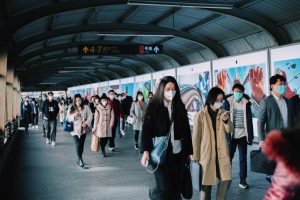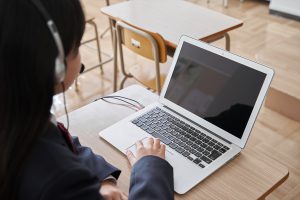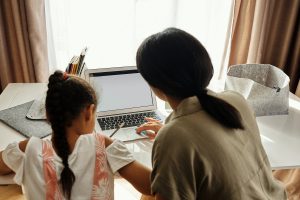The relationship between China, South Korea, and Japan has not always been stable due to the historical legacy. Furthermore, the domestic politics and Sino-US rivalry put Japan and South Korea in a dilemma. The weakening of the relations was fostered due to the decreased diplomatic dialogues and grass-roots exchange due to COVID-19.
To survive political and economic challenges in the aftermath of the pandemic, restoration of ministerial-level dialogues combined with grass-roots efforts is critically important. Nevertheless, the extended bilateral tensions and domestic COVID-19 countermeasures resulted in the postponement of the annual trilateral Summit in 2020.
In the interim, the normalisation of online meetings amid the movement restrictions has fostered the transformation of diplomatic channels. For example, there were three ministerial-level virtual meetings in 2021. The frequency of these meetings has been increased to every two months. This change indicates the possibility for the expanded future dialogues realised through cost-efficient virtual discussions and visualisation of the strong will amongst each ministry via online platforms.
The role of education and exchange programs
Amongst various factors shaping the trilateral relationship, the significance of inter-governmental efforts represented by diplomatic means is rather straightforward. However, you might be wondering how the education and exchange programs can contribute to international bond formation.
To brief you on why such programs matter, research based on the Japan-China joint opinion survey shows a positive correlation between in-person interactions and mutual impressions. Besides, another empirical research denotes that direct interactions have a bigger impact on youth’s ability to understand different perspectives than other learning opportunities.
The above findings suggest the importance of the grass-roots efforts, such as engendering a “we-feeling among younger generations” through education and exchange programs to strengthen trilateral bonds.
Nevertheless, educational activities under student exchange programs were canceled or conducted online amid the COVID-19 pandemic. It has deprived many students of mutual learning opportunities through in-person interactions and multi-cultural experiences. For instance, most students participating in CAMPUS Asia could not go to the university they have registered for exchange or double-degree. Besides, financial difficulties due to the pandemic have also prevented some potential candidates from participating in the program.
Meanwhile, online learning technology has allowed a broader range of students to access and participate in class and get to know each other. By effectively utilising the online-based communication platform, students and management teams could remove the physical barriers and increase interactions and mutual learning opportunities.
The future beyond COVID-19

Taking examples from the experience of CAMPUS Asia participants, the entry restrictions have deprived many students of mutual learning opportunities through in-person interactions. Whereas the educational programs remain independent from the political realm, the domestic infection situation is reflected in the visa and entry management and consequently affects the program’s operation. This shows that the outcomes of domestic counter-crisis policies and bilateral negotiations can primarily affect students’ experience of education and exchange programs in times of emergency.
For instance, only 2 out of 8 participants from Peking University and Seoul National University have made it to Tokyo so far in the spring semester of 2021. Besides, Japanese students still cannot enter China due to visa restrictions. Substantial quarantine costs hinder Korean students from going to Beijing despite granting a visa. And because of this situation, all of the joint classes were conducted online. Field trips and exchange activities were all canceled.
Consequently, many students have lost the chance to interact with other participants in person and outside of the classroom during this pandemic.
On the bright side, fostering the development and use of online learning technology has expanded the range of communication and extended the potential payoffs of exchange programs. Thanks to the online classes providing access to a broader range of participants, students can see those who have joined the program at different times. Also, non-CAMPUS Asia students interested in East Asia’s political and economic affairs whom they would not have known if the classes were conducted on-site.
The online tools have also solved the difficulties undermining the effectiveness of the exchange programs before COVID-19. As online meeting tools such as zoom have made online interaction more accessible, more people are used to seeing other people for the first time online. Moreover, online communication apps can help sustain and strengthen participant connections, usually not kept in the long term with face-to-face interaction. The participants are more likely to make arrangements to meet each other once the movement restrictions are lifted and keep in touch for a long time after the programs. Considering this change as an opportunity for improvement, increased informal meetings and gathering events via online networks can help expand the existing projects.
The COVID-19 crisis has been a considerable obstacle to the intergovernmental and grass-roots efforts in achieving trilateral cooperation. However, the significant development of online tools has brought the transformation of both of these channels. Such change has enabled increased governmental meetings and expanded the scope for friendship amongst participants of exchange programs. Therefore, what is important now is that we learn from this pandemic and establish a more resilient system to prepare for future emergencies. If appropriately applied, online platforms can offer broader opportunities to diplomatic channels and educational programs to help realise a more sustainable trilateral relationship in a post-pandemic future.
This blog post is deliverables in the context of the International Field Workshop in August 2021. It represents the author’s personal views on the subject, not the position of the Trilateral Cooperation Secretariat. The author thanks Ms. Jieun Kim, Ms. Heejin Kim, Ms. Sohee Kim, Ms. Meilian Lin, and Mr. Ryosuke Sawayama from Trilateral Cooperation Secretariat for the professional insights incorporated here.





